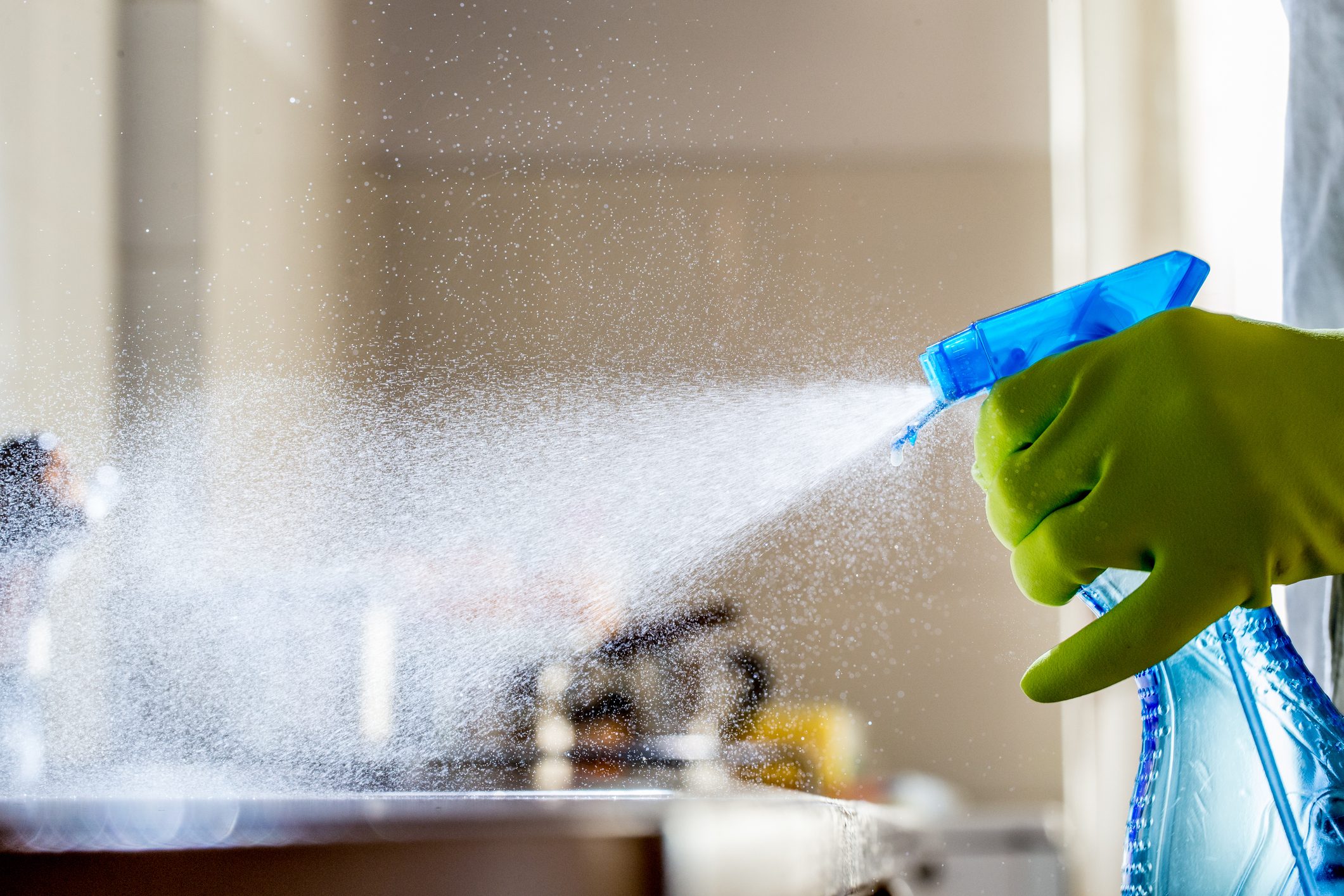
Disinfectant spray
There are a lot of things to know about household disinfectant sprays—such as, what’s the difference between cleaning, sanitizing, and disinfecting? It’s easy to think that spraying a surface means you’re instantly killing germs. However, there are more factors that go into disinfecting than simply spraying a surface. Read on to learn the mistakes you might be making—and how to correct them.
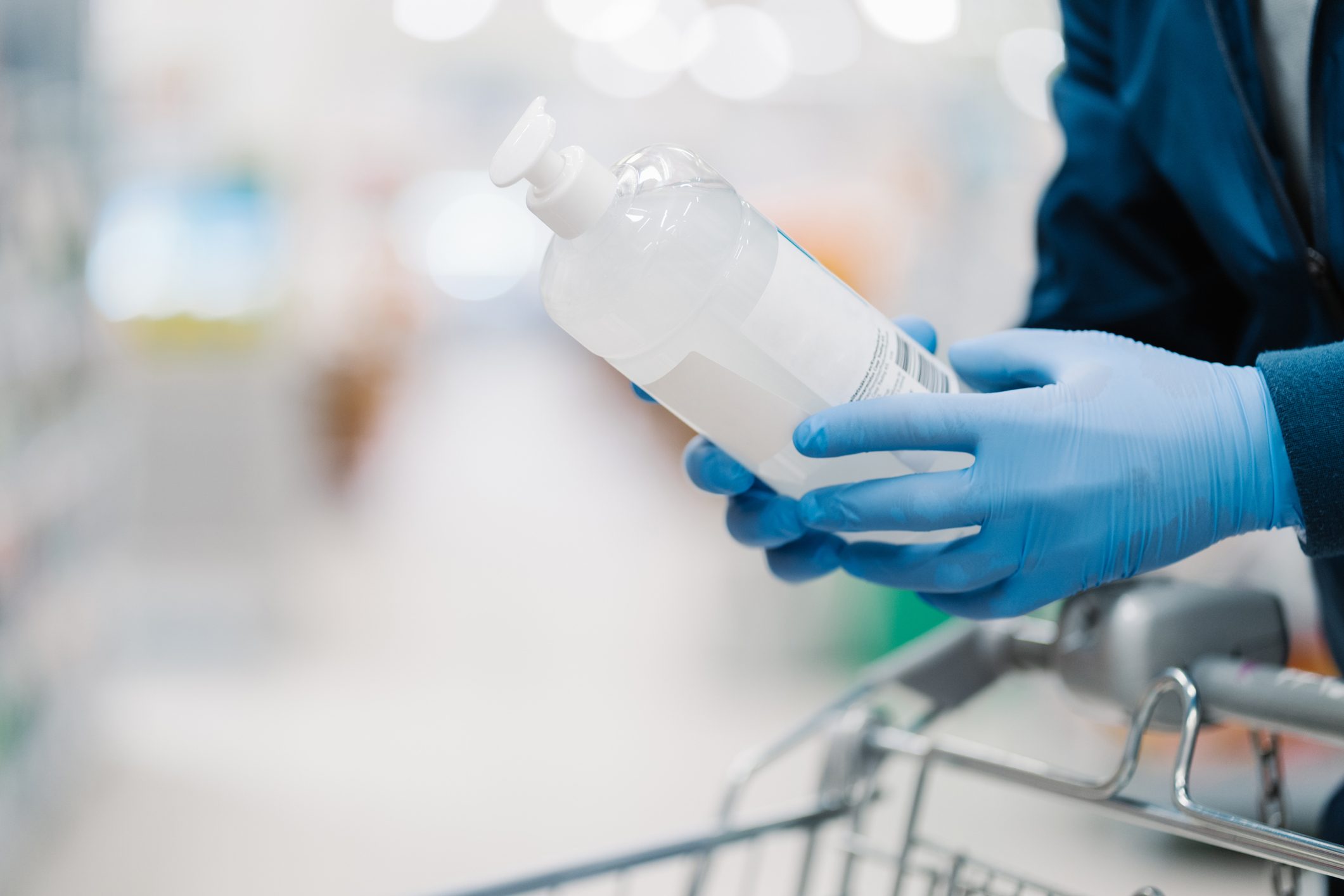
Not thoroughly reading the labels on disinfectant sprays
You might want to start immediately cleaning and disinfecting your home, but sometimes it’s important to start slow. “The biggest mistake is not reading and following the directions on the label,” Brian Sansoni, Senior Vice President, Communications, Outreach & Membership, American Cleaning Institute tells Reader’s Digest. “With disinfecting products in high demand, you may bring home a product you’re not as familiar with. Don’t assume it works the same way. Read the directions carefully and follow them in order to have the desired effect. This may seem like basic advice, but according to a recent American Cleaning Institute survey, 42 percent of Americans aren’t using disinfectants properly.”
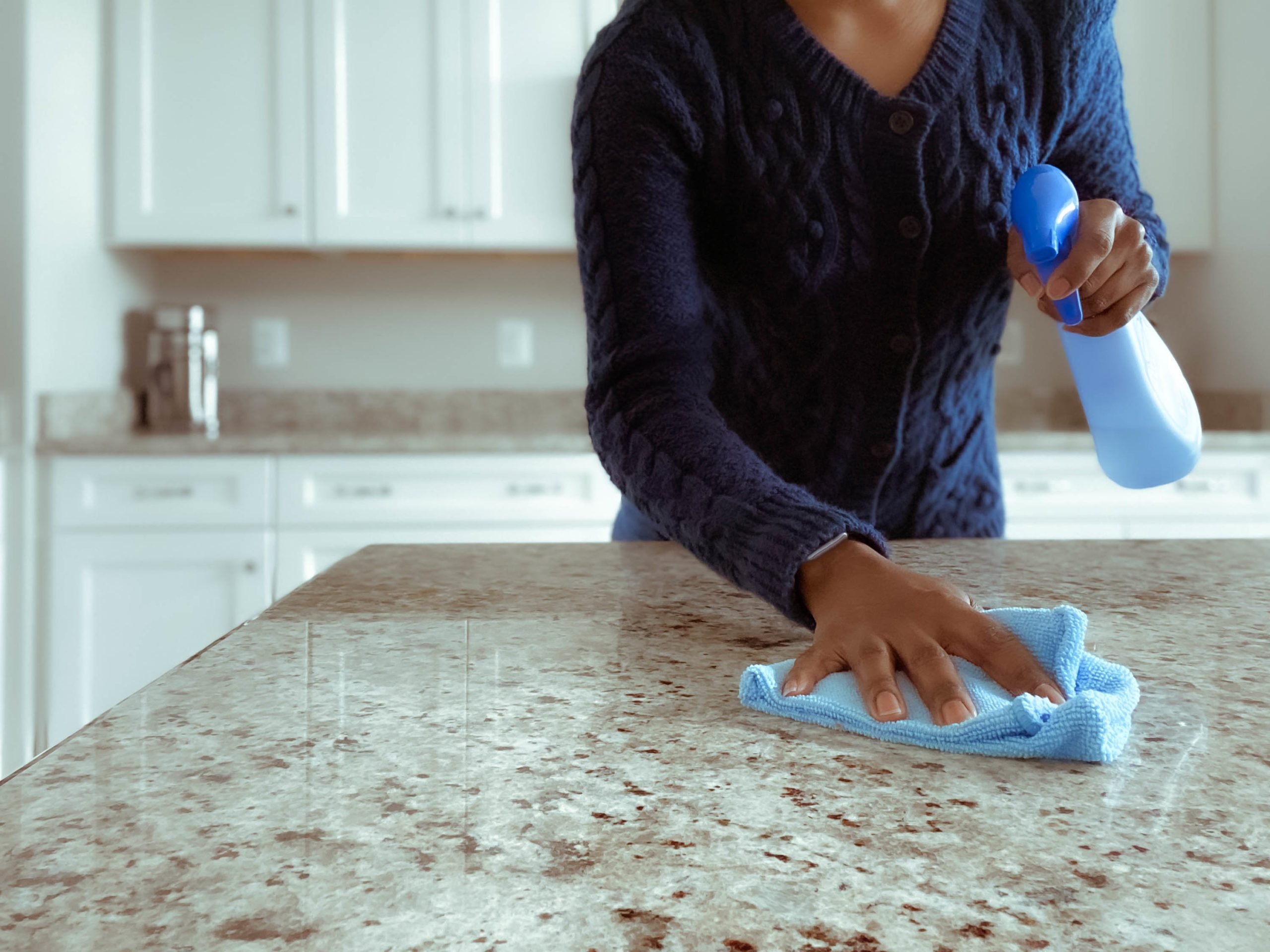
Not letting the sprays sit long enough
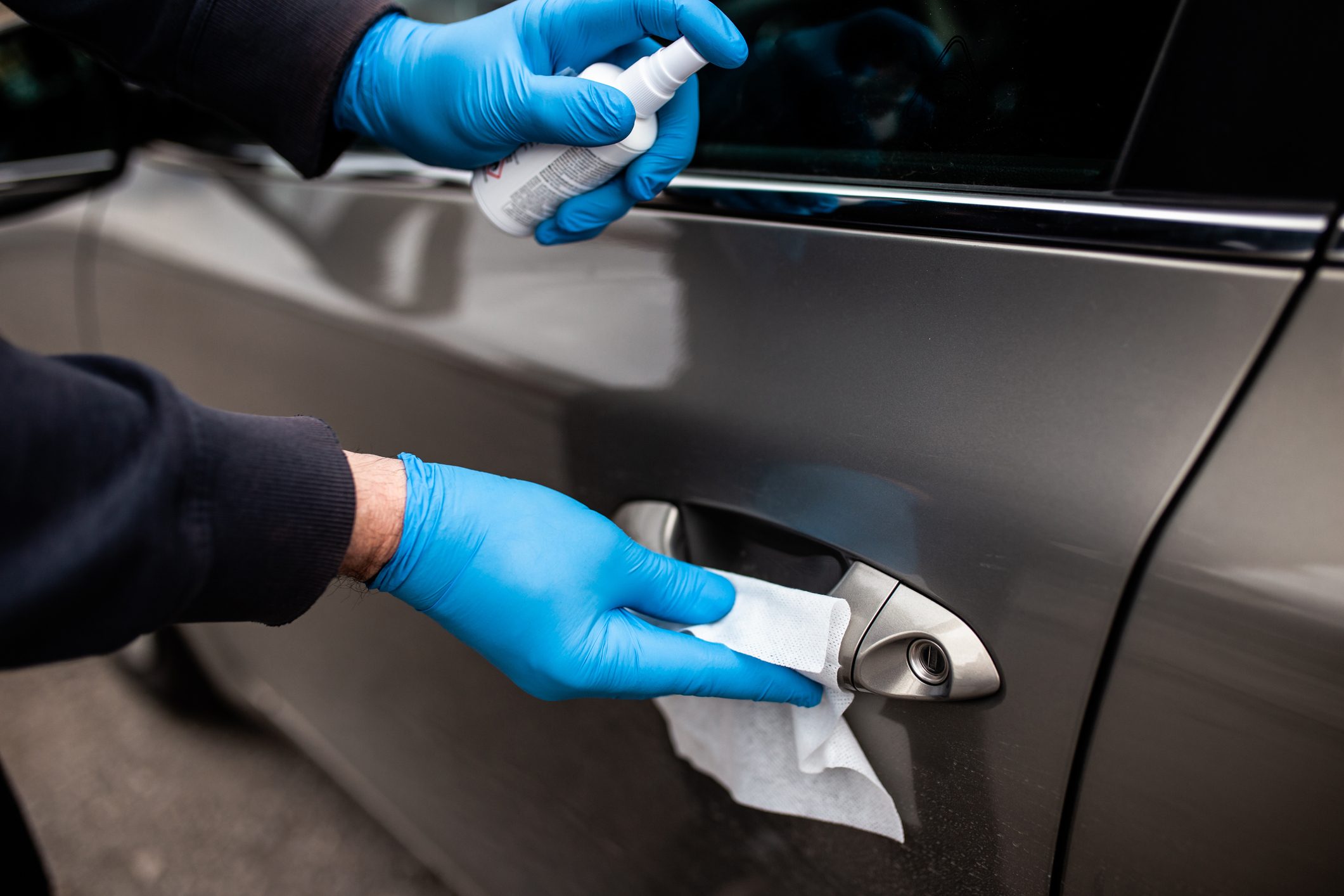
Not spraying enough disinfectant spray
Along with leaving the disinfectant spray on the surface, it has to stay wet for a certain amount of time. “When people don’t follow the instructions on the label, the most common mistake we see is not getting a surface wet enough,” Sansoni says. “For the disinfectant to work, it needs contact time with the surface before it dries or gets wiped away. Depending on the product, this could range from 30 seconds to 10 minutes. It will always tell you how long on the label.” Make note of these 10 things you should be cleaning every day from now on.
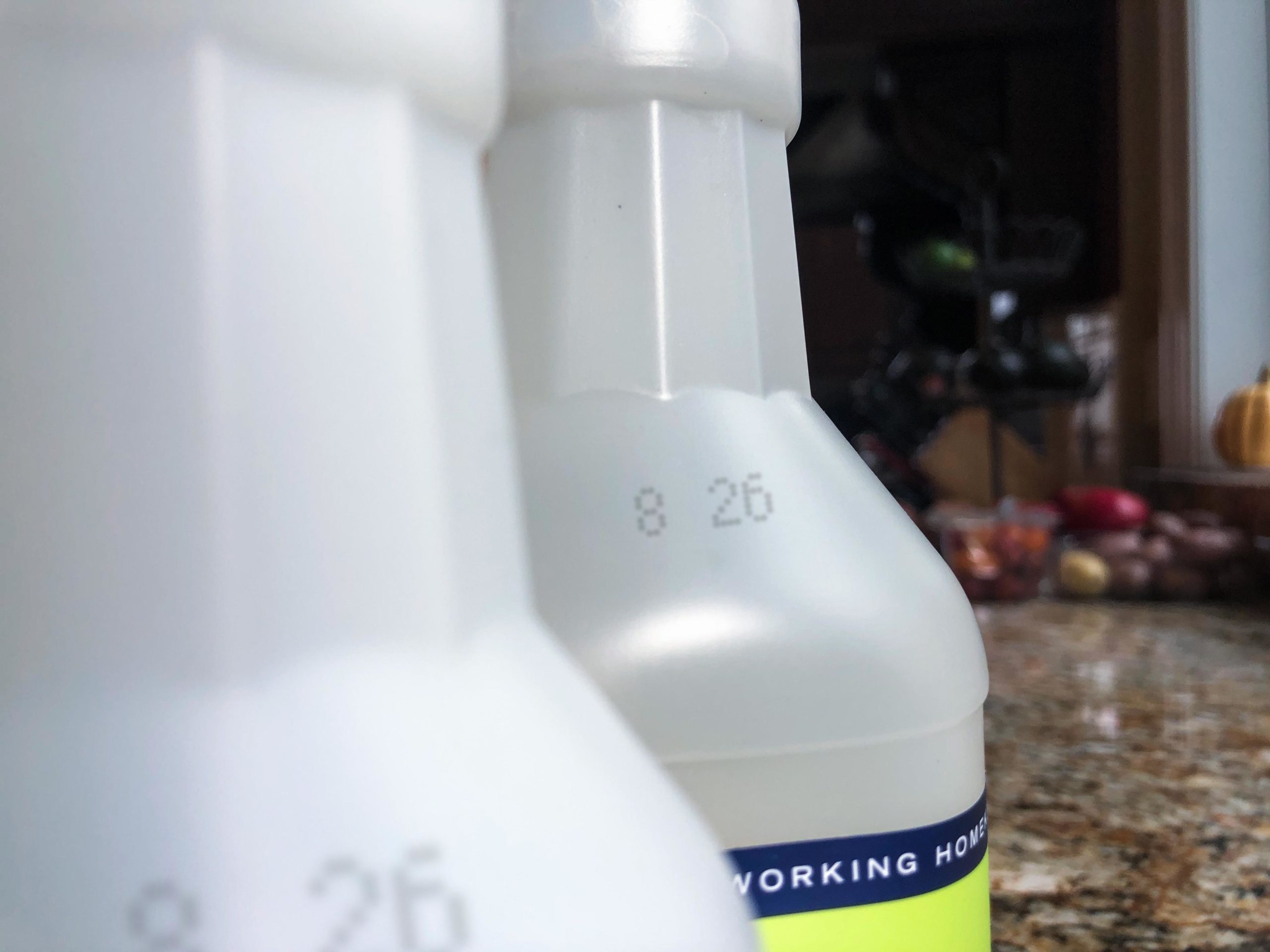
Not checking the expiration date
Checking expiration dates is crucial when it comes to cleaning products. “Disinfectant does expire/lose its potency over time, so it’s also important to check dates and the labels,” Janus says. Disinfectant sprays aren’t the only cleaning products that expire. Yes, bleach expires. Here’s what you need to know.
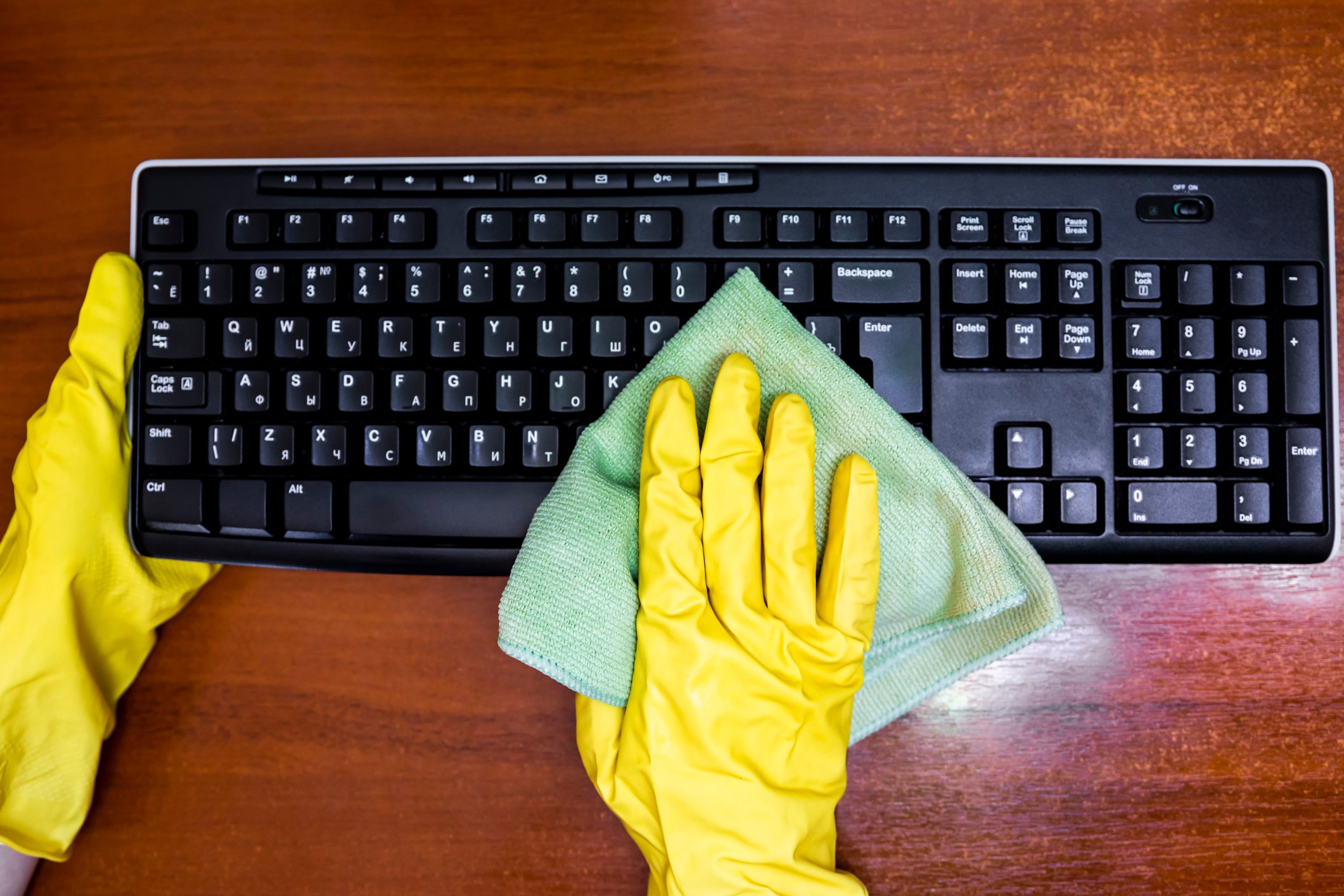
Thinking disinfectant sprays are a long-term solution
“The most common mistake is that people think of disinfectants as a long-term solution. In fact, their effectiveness is temporary,” the experts at Top Cleaners London tell Reader’s Digest. It might be time to carry hand sanitizer with you. From restaurants to supermarkets, here is the dirtiest surface in 12 places you go to all the time.
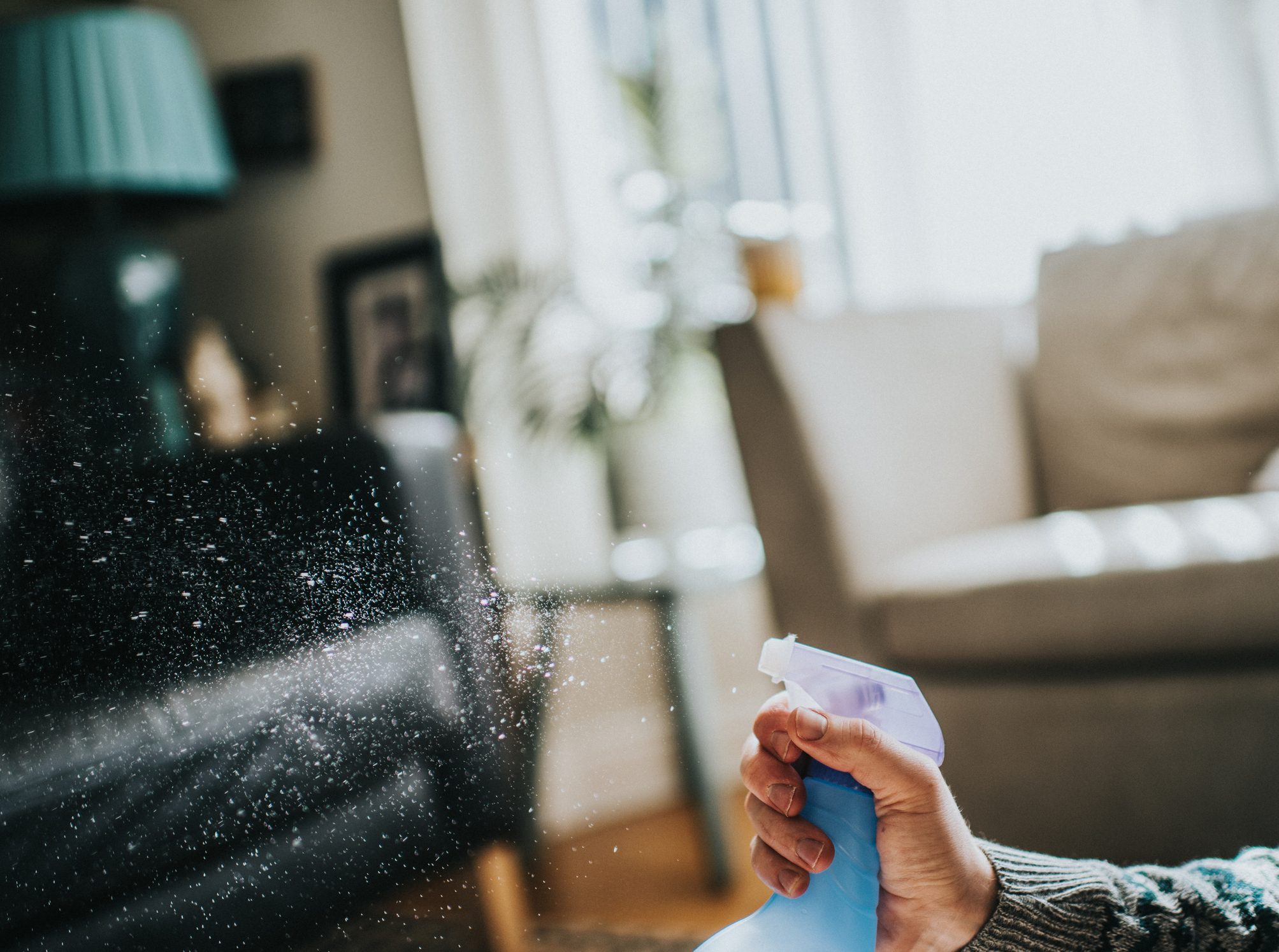
Thinking the sprays purify the air
Disinfectant sprays can do a lot of things…except purify the air. “Another important thing is that they don’t purify the air, only the surface they are applied on,” Cooper says. “Therefore, people need to use them regularly (for example, during the pandemic, government buildings are being disinfected on a schedule—every two to four hours depending on the used chemicals). Generally, the distance from which you spray the disinfectant is not important.” Here’s the answer to whether or not air purifiers can kill coronavirus germs in the air.
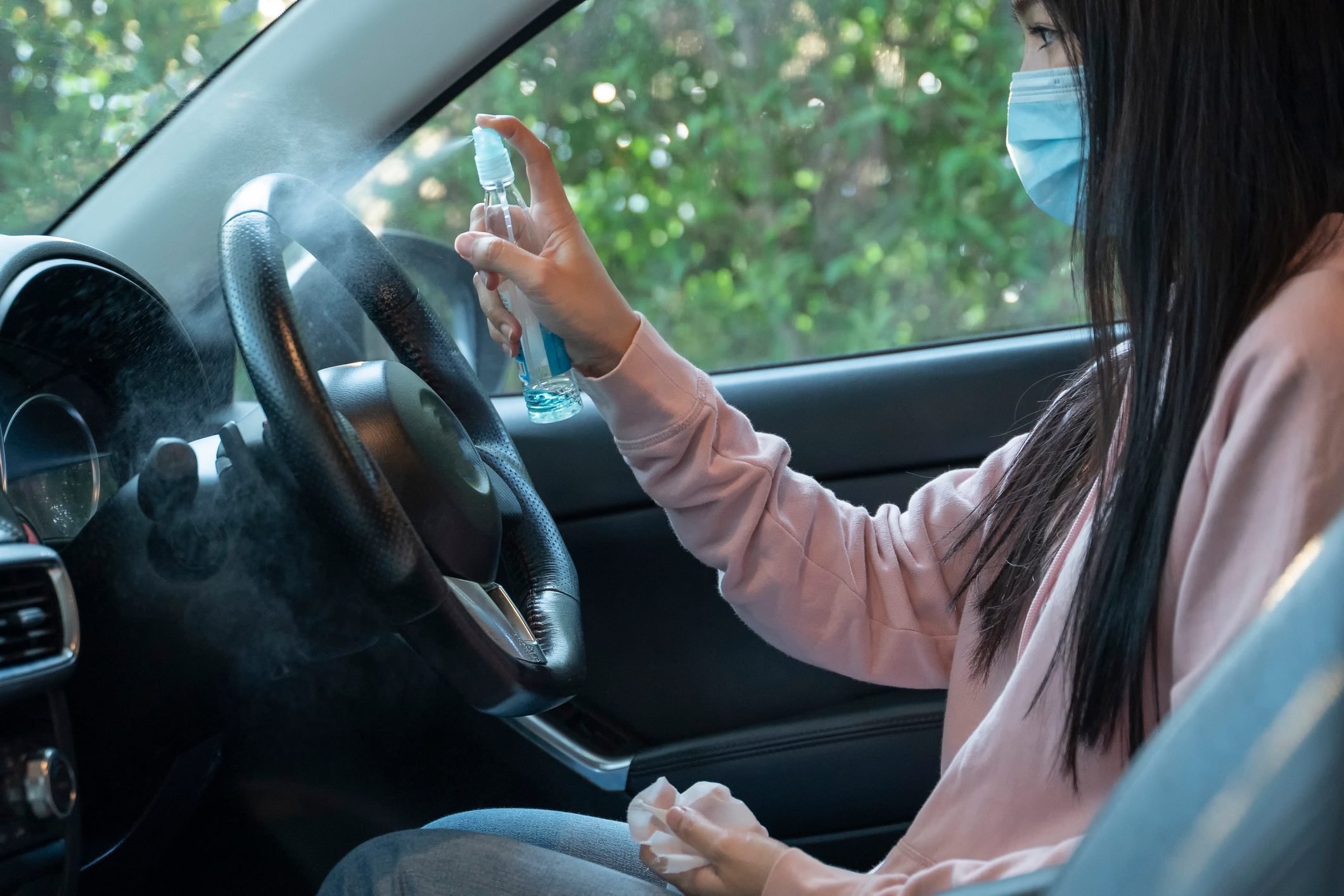
Not cleaning the surface before disinfecting
Yes, when disinfecting, you have to clean the surface beforehand, according to the experts at Top Cleaners London. “Meaning you first wipe with a multipurpose detergent to remove the dirt and then spray it, to kill the remaining bacterias,” Top Cleaners London explains. “However, bear in mind that the terms sanitizing and disinfecting are not interchangeable. Sanitizers reduce the number of bacteria, whereas disinfectants get rid of all germs. In that sense, people should buy disinfectants and not sanitizers.”
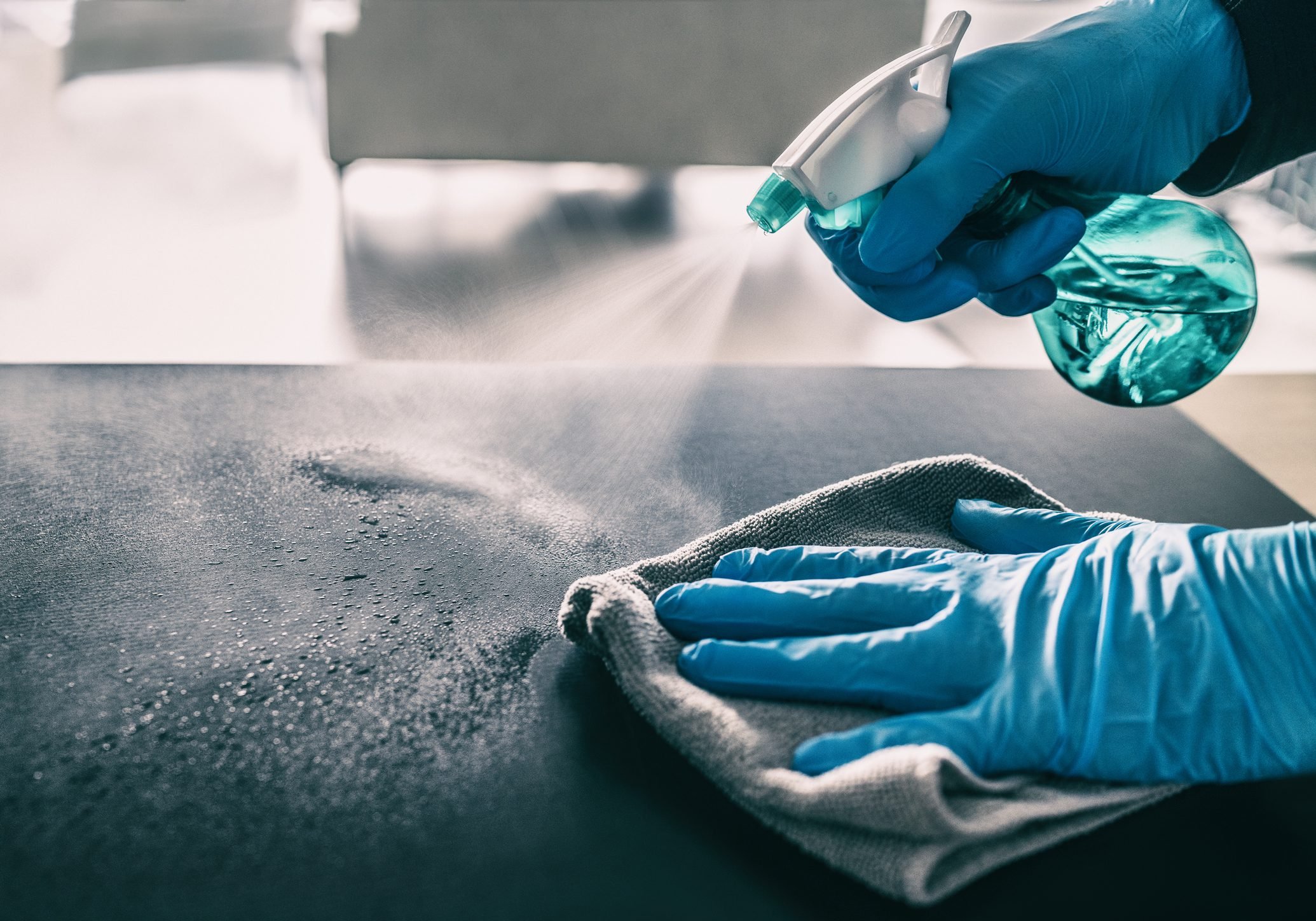
How do you properly disinfect a surface?
To first clean, sanitize, and disinfect a surface means you have to properly know your products. “Your best bet for thoroughly sanitizing any area of your home is to clean first and then disinfect,” Janus says. “There are many products that clean and disinfect in one, but I prefer to use a product specifically meant for whatever surface I’m cleaning (for example, bathroom spray on bathroom counters) and then use a dedicated disinfectant on the cleaned surface.” Sometimes, you might what to hire a professional to clean your home. However, these are the 9 things professional house cleaners aren’t allowed to clean.
There’s a certain method to how you clean, too. It’s not as haphazard as you might think. “I recommend cleaning clockwise and top to bottom, alternating between cleaning and disinfecting,” Janus explains. “So for example, I’ll clean my bathroom sink and counter, spray it with disinfectant, and then move on to cleaning my shower. When the shower’s clean, I’ll spray it with disinfectant and then go back to dry off the sink and counter, etc.”
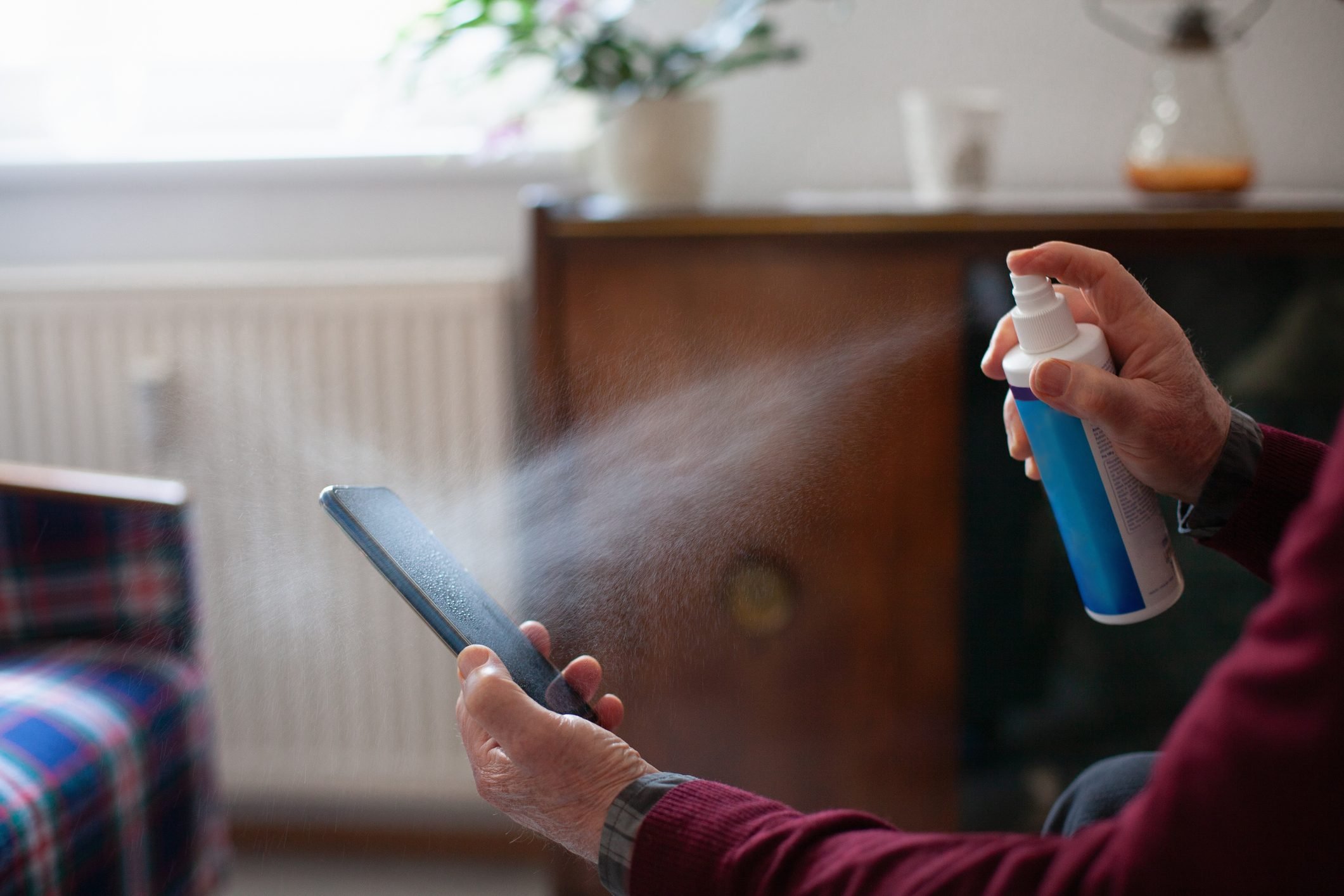
What disinfectant sprays should you use?
Sources:
- Jacqueline Janus, cleaning expert and owner of cleaning company Two Chicks and a Broom
- Top Cleaners London
- Brian Sansoni, Senior Vice President, Communications, Outreach & Membership, American Cleaning Institute
- American Cleaning Institute: “Cleaning and COVID-19: Survey Shows 42% Not Disinfecting Properly”
